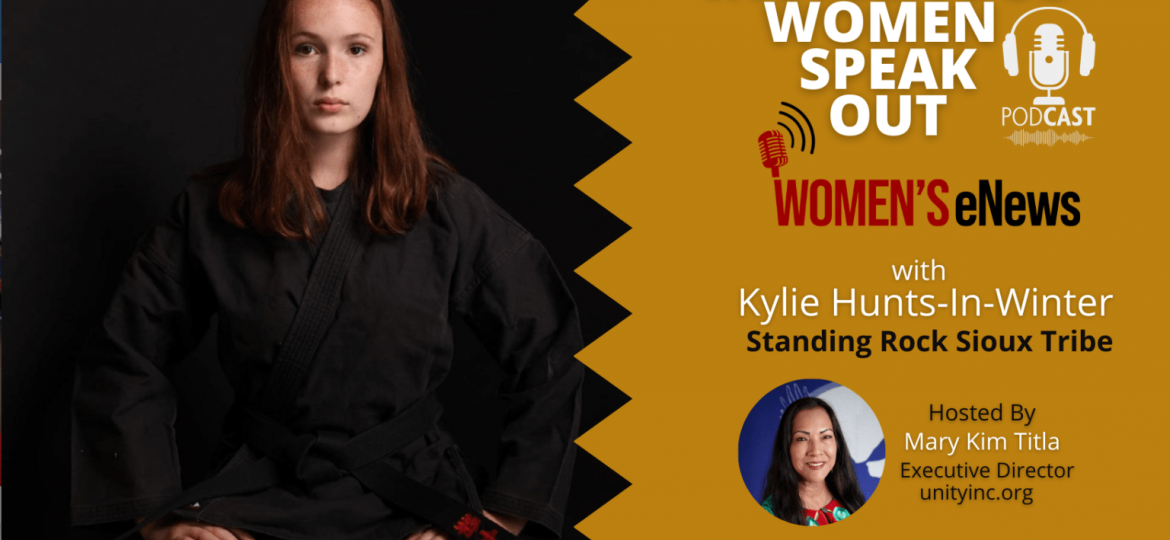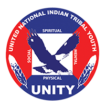
For far too long, Indigenous communities have been spoken for or spoken at, and it is past time to hear from them in their own words. Indigenous women face extraordinary challenges: They are exponentially more likely to be victims of physical and sexual violence, which is often unreported and perpetrators are rarely brought to justice. They also face disproportionate economic, political, health, and cultural deprivations stemming from the ongoing impact of colonialism. Too few people are aware, however, that Indigenous women are often in leadership roles in the fight for environmental concerns, cultural preservation, improving health and human services, and respecting treaty and voting rights. They also have a uniquely valued place in many Indigenous cultures that can help illuminate the paucity of settler culture’s respect for women’s special wisdom.
Women’s Enews Indigenous Women Speak Out series will feature monthly interviews with Indigenous women leaders in the US and Canada. It is being led by Lead Editor and Producer Teresa Stack, President emeritus of The Nation, the oldest weekly publication in the US. All interviews in this series are being conducted by professional journalists who are members of Indigenous communities.

“I’m a descendant of Chief Wanata (One who Charges), Chief Black Catfish, Chief Standing Buffalo and Chief White Bear.”
She may not be famous, at least not yet, but watch out world, Kylie Hunts-in-Winter, a descendant of four Sioux chiefs, is fighting to make a name for herself and has been since the age of four. The Arizona teenager, whose paternal family is from the Standing Rock Sioux Reservation and whose maternal family is Scottish, Irish, and English, is a champion martial artist, having competed in 200 tournaments in her young life. Her Sioux name is Brave Woman. Named after her third great-grandmother, the 18-year-old is ready to make her international debut, not as a martial artist but as an activist hosting a side event later this year sanctioned by the United Nations.
Hunts-In-Winter is deeply concerned about the disproportionate violence experienced by Indigenous women. The UN side event will focus on the Missing and Murdered Indigenous Women (MMIW) crisis. In the US, statistics show four out of five Native American women are affected by violence. One out of three Native American women is sexually assaulted, and 67% of these assaults are at the hands of non-Natives. “It’s important to amplify the voices of the people who are experiencing it firsthand, people who live on Indian reservations,” Hunts-In-Winter says. “How do we make this stop?”
Two ways to make it stop are by encouraging the use of self-defense and making safe choices. With these in mind, Hunts-in-Winter created a social media movement called Brave Woman. Through @BraveWoman, her Instagram account, she has attracted more than 58-thousand followers by promoting self-empowerment and safety. In addition to creating awareness through social media, the teen martial artist also teaches free online self-defense classes.
While Hunts-in-Winter has never been a victim of crime, she did recognize danger at the age of 15 when two men at a bus stop tried to coerce her into a van to help a supposedly injured woman. “They profiled me. I felt it was part of a plan. You must physically be ready for anything but it’s also important to be mentally ready,” Hunts-in-Winter says. She also knows women who have become victims, but many, she says, are still invisible. “We know about those who report being victimized but what about those who don’t report?,” she added.
Hunts–in-Winter actually hopes, one day, to represent victims in her community. A top student at two Arizona online schools, she was recently accepted to Harvard University where she plans to study government, and then go on to attend law school. Fighting for others seems to be in her blood. She has already been at the forefront of other Indigenous movements such as the Dakota Access Pipeline protests (#NoDAPL), a grassroots movement that started in 2016 to combat the then-approved construction of Energy Transfer Partners’ Dakota Access Pipeline in the northern US. She and her father, Timothy, were highlighted by the news media during a protest at the Arizona State capital.
In addition, Hunts-in-Winter is working alongside other Native youth to establish Indigenous Peoples Day as a federal national holiday, replacing Columbus Day. Last year, during the pandemic, she joined a Native youth-led advocacy group in Arizona to push for a state holiday recognizing the contributions of Indigenous people. “It was something I could focus on and make a positive impact at a time when I didn’t know how else to help people,” Hunts-in-Winter recalls. Republican Governor Doug Ducey did sign a proclamation to recognize October 12, 2020, as Indigenous Peoples Day, and this group is continually working with Arizona legislators to make the change permanent.
Hunts-in-Winter, who has red hair and fair skin, is immensely proud of her Dakota heritage. Her family reclaimed the Hunts-in-Winter name after it was changed during colonial times by the federal government to Winters. “We reclaimed the name to stay true to our family’s history and to decolonize the Anglicized name,” she says. And this name having been held by four different chiefs in her family, leadership clearly runs in her veins.


